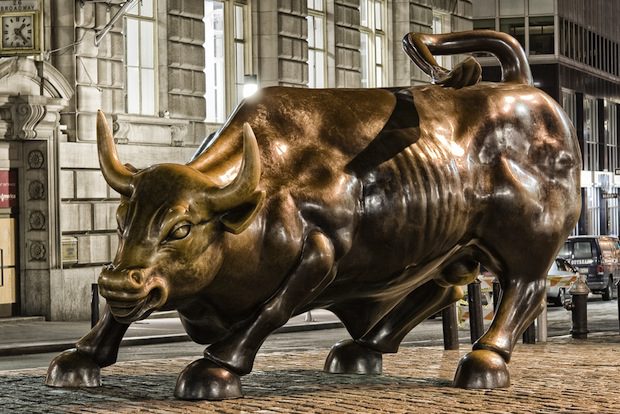Pro-Wall Street Populism

My latest column at The Week is about the apparent paradox of an increasingly populist GOP that is also salivatingly eager to relieve Wall Street of the burden of government regulation:
While it’s tempting to call this simply another case of bait-and-switch, the real answer is a little more complicated than that — and sheds light on why Democrats have a hard time “getting” populism.
Trump may well know people in the real estate business who have had to deal with such lenders, and, as someone who knows a thing or two about being turned away by banks, been sympathetic to their complaints. Whether Dodd-Frank is actually to blame for their relative caution, the banks have every incentive to blame an odious regulation if given the opportunity.
Of course, carrying water for real estate developers sounds just as traditionally Republican as carrying water for banks. How can it be described as populist? Because these kinds of complaints by business dovetail well with a broader populist complaint with progressive regulation. If regulation of the banks reduces lending or makes it more expensive, then the burden of that regulation appears to fall not on bankers but on business — and particularly on small- and mid-sized businesses that depend on bank loans because they don’t have access to the capital markets. These certainly aren’t poor people, but they are more Main Street than Wall Street.
Moreover, with bank profits and Wall Street bonuses up, and hedge funds splitting their “political investments” between the two parties, it’s easy for an observer to conclude that financial regulation is more a sophisticated way to protect incumbents than a means to curb the power of financial interests in any serious way.
If that were true, of course, those interests would not be so keen to weaken regulatory restraint. But the advocates of strong financial regulation frequently and mistakenly assume public confidence in the honor of their intentions and the efficacy of their actions that isn’t assured — and is especially unwarranted when it comes to voters inclined to a populist perspective.
Consider in this regard the conservative complaints about the concept of “too big to fail.” Dodd-Frank regulates especially large financial institutions more heavily precisely because they pose a systemic threat that creates a moral hazard: Confident that the government couldn’t afford not to bail them out, these institutions have an incentive to run more risk than would otherwise be sensible, because if the risks pay off they keep the profits but if they don’t the government is left holding the bag. Moreover, the legislation also gives the FDIC Orderly Liquidation Authority (OLA) to unwind failed firms in a controlled manner.
But from a populist perspective, giving special treatment to some firms because they are “too big to fail” looks like a way of institutionalizing the problem rather than solving it. Even if that special treatment is described as greater oversight, the mere fact that such a status exists implies that finance and government are formally enmeshed in a way that a populist is bound to see as leading to favoritism — which is precisely what the Tea Party types argued when they said that OLA was a kind of “permanent bailout” and that banks that take big risks that go bad should simply be allowed to fail.
Good progressive technocrats know that’s not realistic. But it’s also not realistic to expect “I’m from the government and I’m here to help” to suddenly become a consistently winning message.
Populists don’t like bureaucrats any more than they like bankers. So if the problem of Wall Street malfeasance is framed as “give the government more power to restrain the evil banksters” — which is the standard progressive framing — it’s not completely surprising that the government will lose about as often as the banksters. You saw a somewhat similar dynamic with health care, where Obamacare was vilified as a big-government sell-out to insurers. I have little doubt that, in the fulness of time, taking Wall Street off the leash will prove exceedingly unpopular, just as taking away people’s health insurance has proven to be. But in the short term, I understand why plenty of people may be more inclined to say a plague on both your houses, and financial interests know perfectly well how to take advantage of that attitude.
The populist alternative to growing government power to counterbalance big finance is to structurally reduce the power of big finance and enable individuals and communities to have more control over their economic circumstances. The question genuine populists need to answer is how they propose to do that without impoverishing the country. “Break up the banks” may or may not be a necessary part of the answer, but it is surely not sufficient.
Read the whole thing there.
Comments